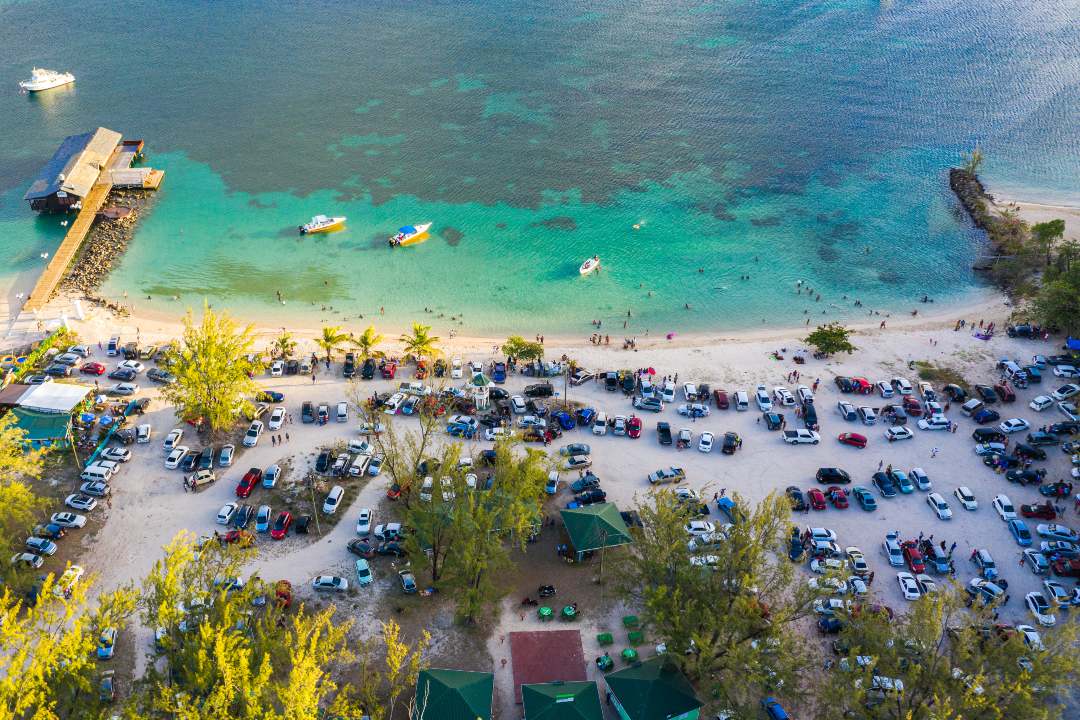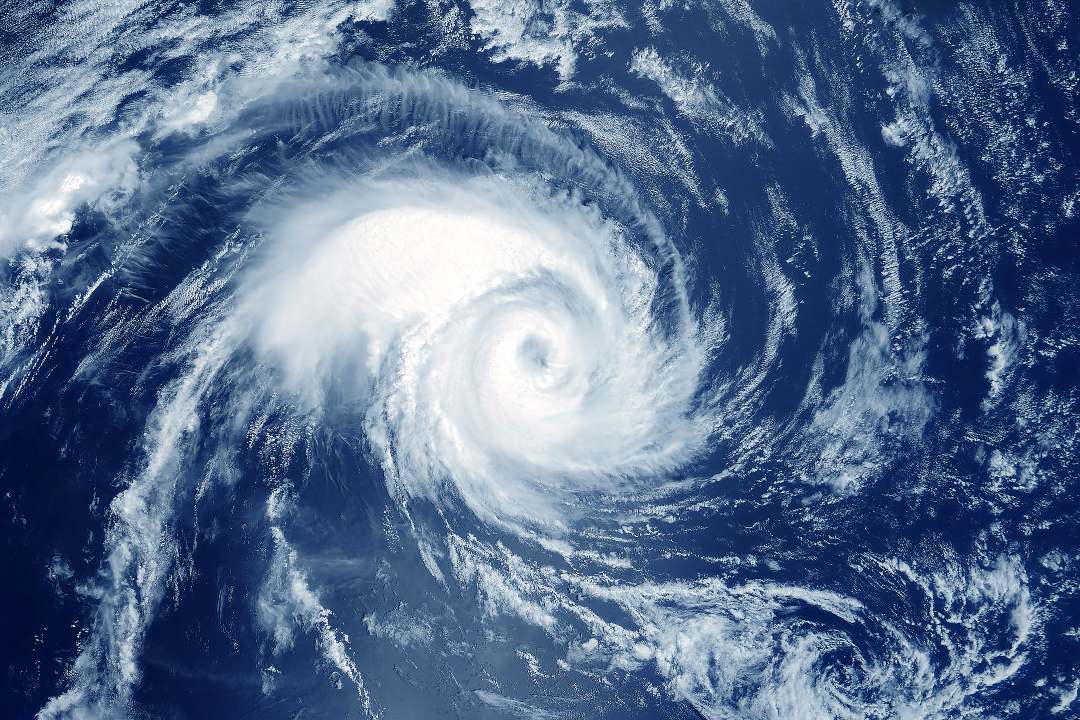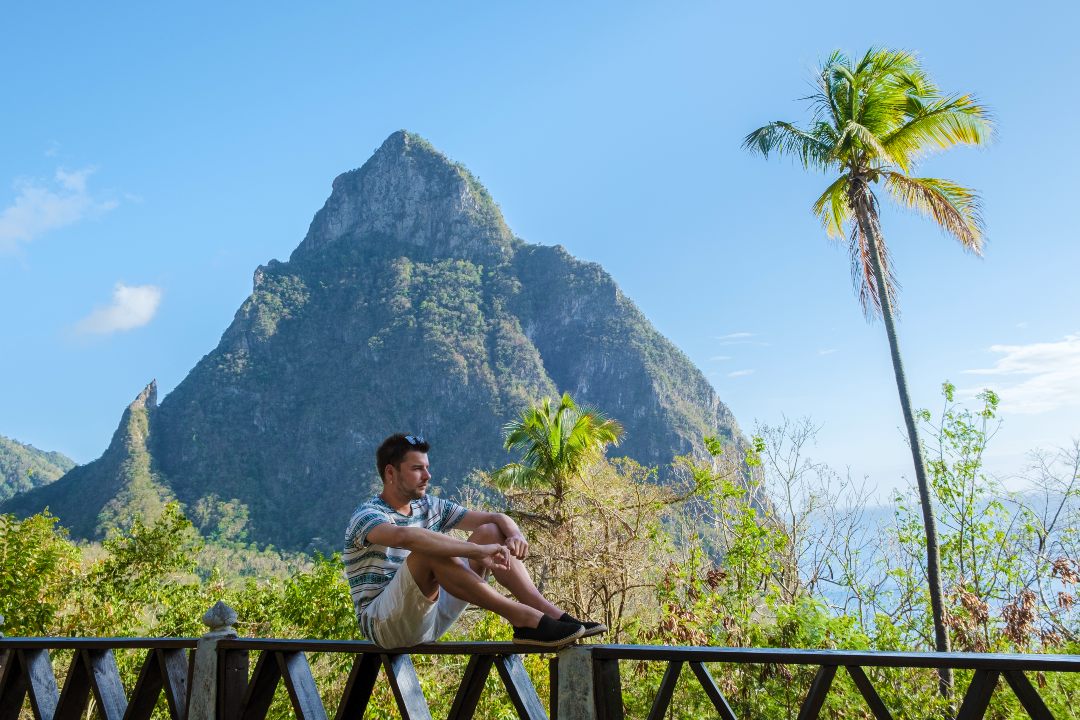If security and peace of mind are a priority for your next vacation, Holidaying in St. Lucia is a great choice.
But,
When planning to travel anywhere, it is essential to get a better idea of the safety and security situation at the destination. To help make planning more accessible for anyone interested in visiting St. Lucia, this post provides comprehensive information about safety there—from crime rates to natural disasters, health risks, and medical safety measures.
In this article, we’ll look at the crime rate in St. Lucia and its comparison to other Caribbean nations. We’ll also bring to your attention any crimes you should be wary of while traveling there and provide useful tips to stay safe during your journey. Furthermore, we’ll discuss the likely risks of natural disasters and advise when is the best time to visit St. Lucia to avoid them. In conclusion, we’ll address health and medical safety matters and provide helpful tips to remain healthy during your journey.
Our goal is to provide a thorough overview of travel information. However, it’s recommended that you consult government-issued warnings and guidelines before organizing your journey. Keeping up to date with the latest news can help you make well-informed decisions for a safe and enjoyable trip. By the time you finish reading this post, you will have been given a more detailed insight into the security of St. Lucia and be able to make a wise decision when considering your travel choices.
Crime and Safety in St. Lucia

St. Lucia is one of the Caribbean’s safest destinations, with comparatively low crime rates. It’s always wise to be mindful of potential risks and take the necessary steps to ensure your security.
St. Lucia has seen a rise in petty theft, including pickpocketing and theft from hotel rooms. This is especially prominent in places that draw many tourists, such as beaches or markets. Being vigilant and attentive to your possessions is highly recommended. Refrain from carrying large sums of cash or expensive jewelry, and use hotel safes or safety deposit boxes to store valuable items if necessary.
While St. Lucia is not known for its high crime rate, it’s best to stay alert and follow safety measures for your protection. To reduce the risk of being a victim of violent crime, it’s advised to stay away from walking alone in areas you are not familiar with at night and avoid carrying around large sums of money or expensive jewelry.
To protect yourself while visiting St. Lucia, paying attention to your environment and taking the necessary steps to avoid becoming a victim of crime is critical. Leave large amounts of money or valuable jewelry at home and hotel safes or safety deposit boxes. As a general rule, it is wise to abstain from strolling alone in unknown locations during the night and carrying a large amount of cash or expensive items. Crime rates are frequently high in tourist hotspots, particularly at late hours, so caution needs to be taken when traveling through such areas.
To stay safe from pickpocketing and other forms of theft, it’s best to remain vigilant and mindful of your surroundings, especially in busy or touristic locations. If you’re ever in doubt or feel uncomfortable, contact the local authorities or hotel staff for assistance.
Natural Disaster Risks in St. Lucia

Travelers should always consider potential risks and take the necessary safety measures to ensure their well-being. St. Lucia, situated in the Caribbean Sea, is susceptible to severe hurricanes, tropical storms, and earthquakes due to its location in a seismic zone. Hence, regular preparation and safety protocols must be followed to protect against these natural disasters.
Caribbean hurricanes usually occur between June and November, making it vital to stay updated with the latest weather forecasts. Additionally, having an emergency plan set up during this period can help you prepare for whatever comes your way. Preparing for the worst is critically important and should consist of having a safe place to take refuge, storing non-perishable food and water, and having a communication plan with your family. It’s also encouraged to get travel insurance that includes coverage in case of natural disasters.
While St. Lucia is not as prone to earthquakes, they can still happen, so it’s best to be prepared. Make sure always to have a safe place to go and if an earthquake occurs, quickly hide under a sturdy desk or table and stay away from windows and doorways. It’s always a good idea to have a plan for an emergency. Make sure you have one and a store of non-perishable food and water in case of an unexpected situation.
For a safe and smooth trip, it’s advised to plan your travels away from the hurricane season, which usually takes place between June and November. The best time to travel to St. Lucia is from December to May. Even though natural disasters can’t always be predicted, it’s wise to keep an eye on local weather forecasts as a precaution. It’s also essential to have an emergency plan and be prepared for any catastrophe.
Although St. Lucia is vulnerable to natural disasters, tourists can still experience a safe and fulfilling holiday, staying informed about any risks and following all safety guidelines.
Health and Medical Safety in St. Lucia

When visiting St. Lucia, travelers should be aware of the health and medical safety risks. A mosquito-borne illness to consider is dengue fever, which can have severe consequences if left untreated. To keep yourself safe from mosquito bites, it is essential to take the necessary precautions. This could include using insect repellent, dressing in long clothes, and avoiding outdoor activities during peak mosquito hours.
Traveling can be risky, especially when it comes to food. To stay safe, you should always opt for hot meals cooked thoroughly and avoid raw fruits and vegetables washed in tap water. To maintain your health, it’s essential to steer clear of eating at street vendors or restaurants that do not follow proper hygiene standards.
Before embarking on your trip, you must receive the necessary vaccinations and bring any medication you may need. Additionally, staying hydrated during the journey and getting enough sleep are essential for sustaining good health.
Emergency medical services are available around the island to help ensure your safety and peace of mind. St. Lucia has several medical centers that provide excellent healthcare services if you become unwell during your stay. From hospitals to clinics and private doctor’s offices, help is always nearby. In case of any emergency, while traveling to the island, it is essential to have travel insurance that covers medical costs. Additionally, knowing the nearest hospital or clinic should you need urgent medical attention is crucial.
As long as you’re aware of the potential health risks and take the necessary precautions, you can still have a great time in St. Lucia, despite some health concerns. Traveling safely and responsibly will make sure your trip remains healthy and enjoyable.
Conclusion
All in all, St. Lucia is considered a secure travel spot. Like any international travel endeavor, it is vital to be aware of potential criminal activities, risks regarding natural disasters, and health issues. With the proper safety measures and preparations, travelers can still have a fun and secure time on the island.
Compared to other Caribbean nations, St. Lucia enjoys a much lower crime rate. This has made it an ideal destination for travelers who value safety and security during their vacation. Even though crime rates may vary in different areas, it is still essential to remain vigilant and be aware of potential theft and violent crime. Taking the necessary precautions, like not venturing into certain areas or staying alert of your surroundings, can ensure you have a safe and stress-free travel experience.
St. Lucia is prone to natural calamities like hurricanes and earthquakes, but you can still vacation here safely by keeping an eye on weather forecasts and alerts. Having a plan in case of emergencies and avoiding the hurricane season are also ways to ensure a safe trip.
It’s essential to be conscious of the health and medical hazards associated with travel, such as dengue fever, and food-borne illnesses. But with the proper precautions, you can still have an enjoyable and healthy trip to the island.
St. Lucia is generally considered to be a safe destination for tourists. However, it’s always best to be well-informed before going on a trip. Therefore, take some time to research and ensure you have all the necessary information before planning your visit. Resources that can help include government travel warnings from places like the US Department of State or local tour operators.

Damian is a co-founder, editor, and author at Islanderkeys. He is also a dedicated father and husband. Damian is an IT Manager / Web developer by profession, but he loves to Blog and share his knowledge about St. Lucia in travel forums.


